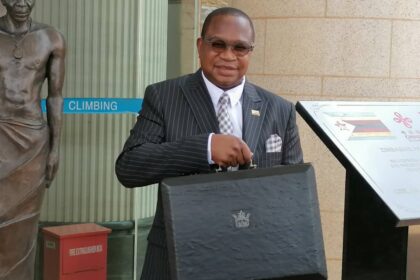The proposed piece of legislation is retrogressive. It is likely to result in government over-regulation of the non-profit making and voluntary entities which eventually will result in the curtailment of fundamental freedoms and human rights.
The proposed Bill aims to regulate the support of political parties by Civil Society Organisations (CSOs), contradicting the constitutionally protected freedom of association.
It introduces a ban on “political involvement” for PVOs, a term so ambiguous it risks being abused to target CSO leaders, activists, and NGOs safeguarding civil and political rights enshrined in Zimbabwe’s Constitution and international agreements.
Unjust restrictions imposed by the Bill on NGOs and their operations violate constitutionally guaranteed freedoms of association, assembly, expression, and other political rights.
The United Nations Declaration on Human Rights Defenders emphasizes that states have a duty to protect, promote, and implement all human rights and fundamental freedoms.
This includes the right of individuals and groups to form, join, and participate in non-governmental organizations at both national and international levels.
Additionally, states are obligated to ensure that resources can be solicited, received, and utilized for the explicit purpose of advancing and safeguarding human rights through peaceful means.
Freedom of expression is an enabling right from which other rights, such as freedom of association are derived from. It is for this reason that the contravention of Article 19 on the Declaration on Human Rights Defenders as well as Section 58 of the Constitution in the proposed PVO Amendment Bill is particularly worrying.
It is accepted that the right to freedom of association and expression are not absolute, however the PVO Amendment Bill does not serve a legitimate purpose, and neither is it necessary. On the contrary, the Bill has a potential to unduly restrict freedom of expression and association.
Broader Implications
Vulnerable groups will be exposed to greater poverty as many churches and organizations work with foreign based charity organizations. By putting tight restrictions on foreign funding for NGOs, the Bill will lead to many charity groups withdrawing their support leading to extreme poverty for the vulnerable groups.
Considering that most funds are from foreign organisations, Zimbabwe is at risk of losing foreign currency as most donors are likely to withdraw their funds and divert them to countries that respect human rights.
The Bill interferes with the independence of NGOs and gives the Registrar of NGOs and the Minister too much power to do as they please regarding the NGOs.
For example, the Minister may shutdown an NGO if there are suspicions of ‘financial terrorism’. What constitutes financial terrorism is up to the Minister.
Concentrating too much power on the Executive also goes against the principle of separation of power.
This limits the activities of the NGOs as they will be afraid to raise concerns or criticize the government.
In its attempt to control and silence NGO activities, the Bill inevitably infringes upon their freedom of expression.
Within the Bill, human rights violations, such as intimidation of defenders who oppose it, are prevalent.
Proposing severe penalties, including up to one year of imprisonment for MGOs supporting political activity, the Bill effectively criminalizes human rights work.



